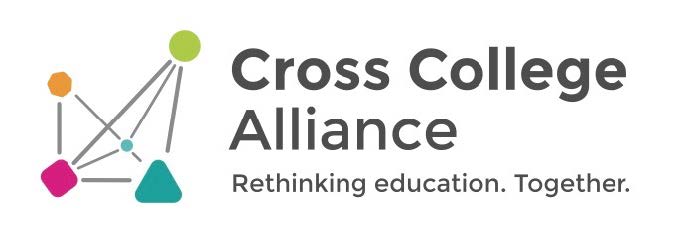
The final deadline for submission of all necessary paperwork, which includes approval from a student’s advisor and their home institution’s Cross-Registration Coordinator, is set for this upcoming Nov. 22 and it seems most students having interest in the idea have no clue as to how to make the cross-registration a reality. Dean of Studies and Associate Professor of English Robert Zamsky, also serving as New College of Florida’s Cross-Registration Coordinator, sheds light on the matter and heeds students to have open discussion with advisors prior to setting out for any of the courses offered by the other participating institutions.
“Students should always make sure to speak with their advisor about how cross-registration might fit within their academic program,” Zamsky wrote in an e-mail interview. “In the end, students can’t register for a cross-registration course without their advisor’s approval; but that conversation should happen at the beginning of the process.”
The participating schools of the Cross College Alliance (CCA) that undergoes the Cross-Registration Pilot Program include the four colleges in the Consortium of Colleges on the Creative Coast (C4): New College of Florida (NCF), State College of Florida (SCF), University of South Florida Sarasota-Manatee (USFSM) and the Ringling College of Art and Design. The three other institutions an NCF student could apply to for cross-registration all have their Spring 2018 semester starting on Jan. 8, which is right at the beginning of NCF’s January Interterm where Independent Study Projects (ISPs) are underway. This means the cross-registration courses one may be taking will finish earlier than the NCF Spring term would go on for. Luckily, for this upcoming Spring term, there isn’t much of an intercollege academic calendar dilemma, but it’s always something a student should be wary of.
“There are always inconsistencies between the calendars; students interested in cross-registration need to double-check when classes start, and they need to make sure their schedule can accommodate the calendar differences,” Zamsky wrote in an e-mail interview.
What would make cross-registration easiest for a student would be if they owned a car for transportation from campus to campus, but otherwise if there’s a will there’s a way. Another key point to keep in mind is that whatever course one takes in a host institution won’t count towards the semester’s contract completion. Meaning, if the contract contains three NCF courses and one Ringling College course, the student that the contract pertains to would have to successfully satisfy each of the three NCF courses, which might be a heavy burden.
“Your cross-registration credit doesn’t count towards your minimum of three classes, which means you’re going to have to pass the other three classes you’re taking in order to get a full contract,” third-year Volanta Peng, who cross-registered for a printmaking course in Ringling College in Fall 2016, wrote in an e-mail interview. “Having a light workload while doing cross registration at Ringling is a benefit because you have to pass your other three classes, so do not do cross-registration if you’re going through a rough patch because it definitely restricts the flexibility New College students are used to.”
Cross-registration allows for students to have the opportunity to take courses that aren’t regularly offered by their home institution, but are offered by a host institution. This is significant to students of NCF especially since most classes have low availability and students regularly get capped out of classes and there are hardly any artistic courses to begin with. The other institutions involved flat out have greater capacity for their classes and greater number of offerings for the same type of course, such as with physics courses and their respective pre-requisites courses.
“I think cross-registration is a terrific asset to our students, and to everyone in the consortium. The increased academic breadth is an obvious benefit, but there can also be social and interpersonal positives related to doing work on a different campus (and having students from other campus here),” Zamsky wrote in an e-mail interview.
A maximum of three courses is allowed per semester for cross-registration. Notifications of course enrollment will be sent out on Dec. 8, but for a student to be fully considered for approval they must have good academic standing in their home institution, be a full-time degree seeking student and may possibly have to show proof of immunization, but this should already have been settled with the home institution. There’s no extra cost to be a part of the program, it would be as if paying for the same semester at one’s original school. Contact the Registrar Offices of the participating schools if interested.
Contact Information:
Ringling College: Justin Selph, e-mail: crossregistration@ringling.edu
SCF: MariLynn Lewy, e-mail: records@scf.edu or call: 941-752-5383
USFSM: Glenna Schubert, e-mail: registration@sar.usf.edu

